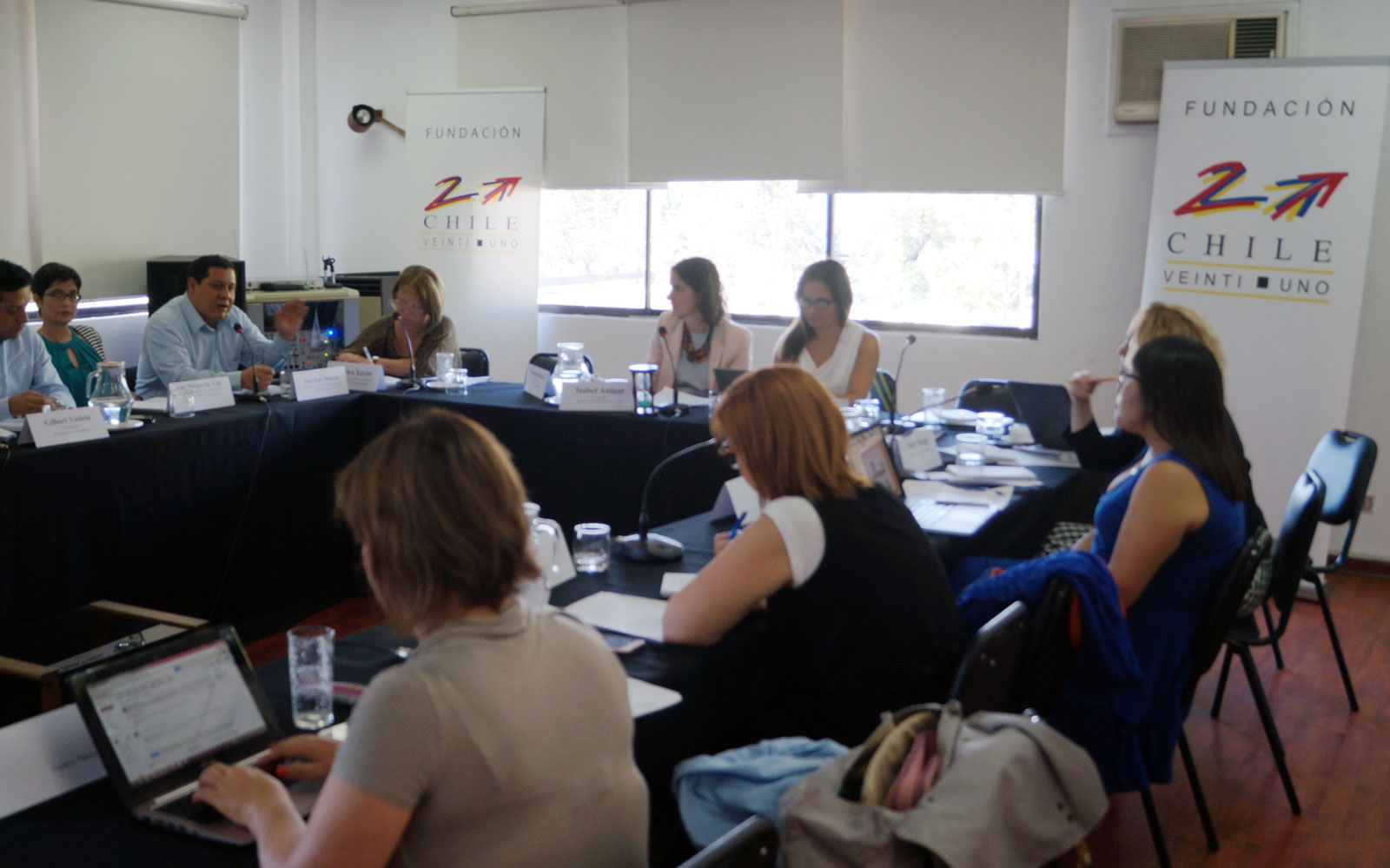
SHARE
Through its Innovation Network (Red Innovación) regional program, NDI is taking advantage of the impact and reach of new technologies to allow for the exchange of best practices between civil society and government across Latin America. From January 11 to 13, Red Innovación brought a group of 10 political leaders from 10 countries across the region together with Chilean politicians. Meeting in Santiago, Chile, representatives from Argentina, Bolivia, Colombia, Honduras, Mexico, Nicaragua, Paraguay, Peru, Uruguay and Venezuela participated in a seminar with civic organizations and think tanks to discuss challenges facing political parties, with the goal of identifying solutions to revitalize the role of parties, thereby strengthening democracy across the region.
Parties today confront a demanding citizenry that has greater capacity for expression and criticism of classical forms of representation, consistently questioning existing systems. Political parties, which served as a fundamental intermediary between civil society and the state in the twentieth century, must now revisit their identity and evolve with these changes to function as modern political and social forces.
Party financing, electoral campaigns and politics in general generated much debate among the participants. According to an Argentinian leader who attended the forum, “political financing should not only be understood within the framework of a political campaign and resources for campaigns -- which is the constant focus of citizens and where mechanisms for accountability, transparency and oversight should exist -- but also the sustainability of political parties, and their financing deserves state systems to help sustain these organizations.” Beyond defining the type of funding available (public, private or mixed), there was consensus on the need to implement effective and efficient monitoring and control mechanisms, as well as strengthen the functions of electoral and judicial agencies to establish example sanctions.
Political financing should not only be understood within the framework of a political campaign and resources for campaigns -- which is the constant focus of citizens and where mechanisms for accountability, transparency and oversight should exist -- but also the sustainability of political parties, and their financing deserves state systems to help sustain these organizations.
- Argentinian leader
Like any group of organized citizens, political parties confront the challenge of developing and implementing procedures to guide individual and group behavior within the organizations. Party life and internal dynamics require, among other aspects, special attention on the prevention and resolution of conflicts, promotion of debate and, a guarantee of party discipline, all without undermining the basic liberties of members. The exercise of “internal democracy” and the consistency with which party leaders adhere to political platforms were identified as a particularly relevant topic during the discussion. Participants identified two key challenges:
- the selection of candidates who are committed to party programs; and
- internal processes that promote healthy competition, proactive debate and the inclusion of distinct groups that reflect society
There is a need to consider how parties can be parties of the 21st century and adjust to a new reality that is a combination of norms and of political will.
- Nicaraguan leader
Many political organizations and parties find the construction of coalitions an important mechanism to increase power as well as their resources. However, creating and maintaining united coalitions is a difficult task -- a fact examined in detail in NDI’s Coalitions Guide. Participants placed emphasis on the differences that develop when creating electoral coalitions, noting that cohesive coalitions are required to maintain effective government or a unified opposition. Either way, it is clear that political will is not sufficient to guarantee a successful coalition. Participants identified four other key factors:
- the expression of joint programmatic objectives;
- the establishment of clear mechanisms for decision making
- resolution of conflicts; and
- permanent communication and dialogue.
With seminar co-sponsors Chile 21 Foundation and the Center for Public Studies (Centro de Estudios Públicos, CEP), Red Innovación is currently summarizing the discussions, best practices, challenges and proposals from these sessions to create a document of use for political parties and decision makers seeking to better understand and adjust to a new reality and become more modern organizations in the process.


